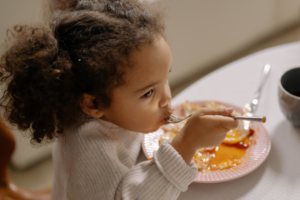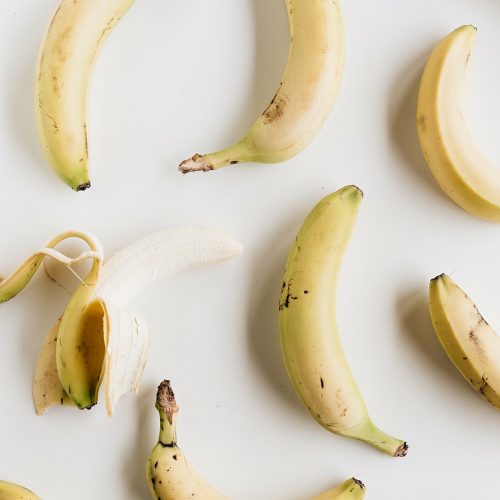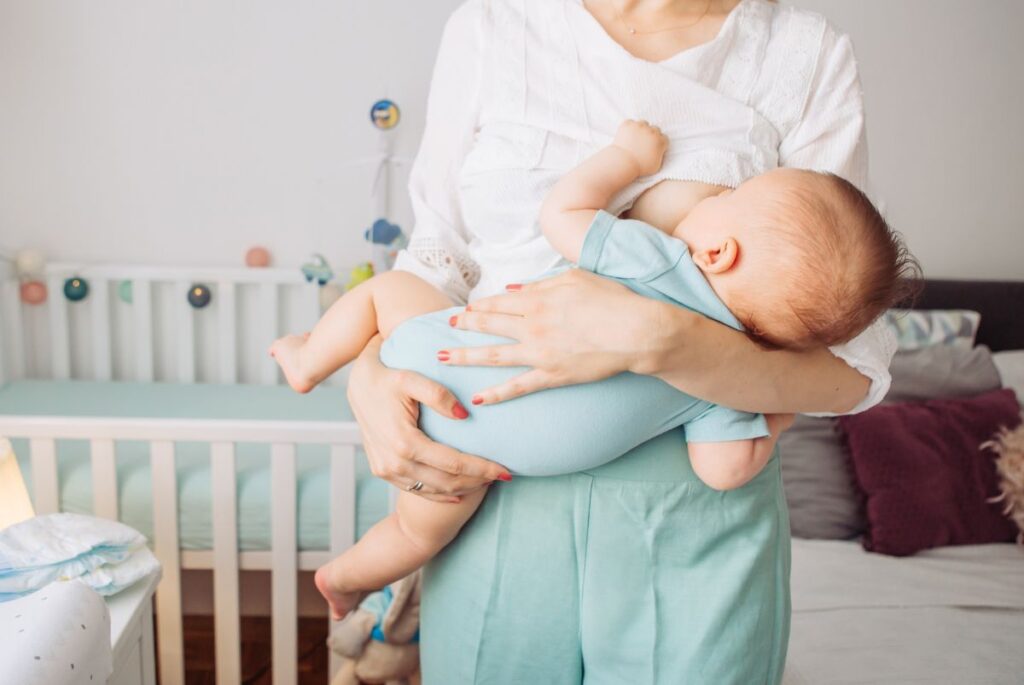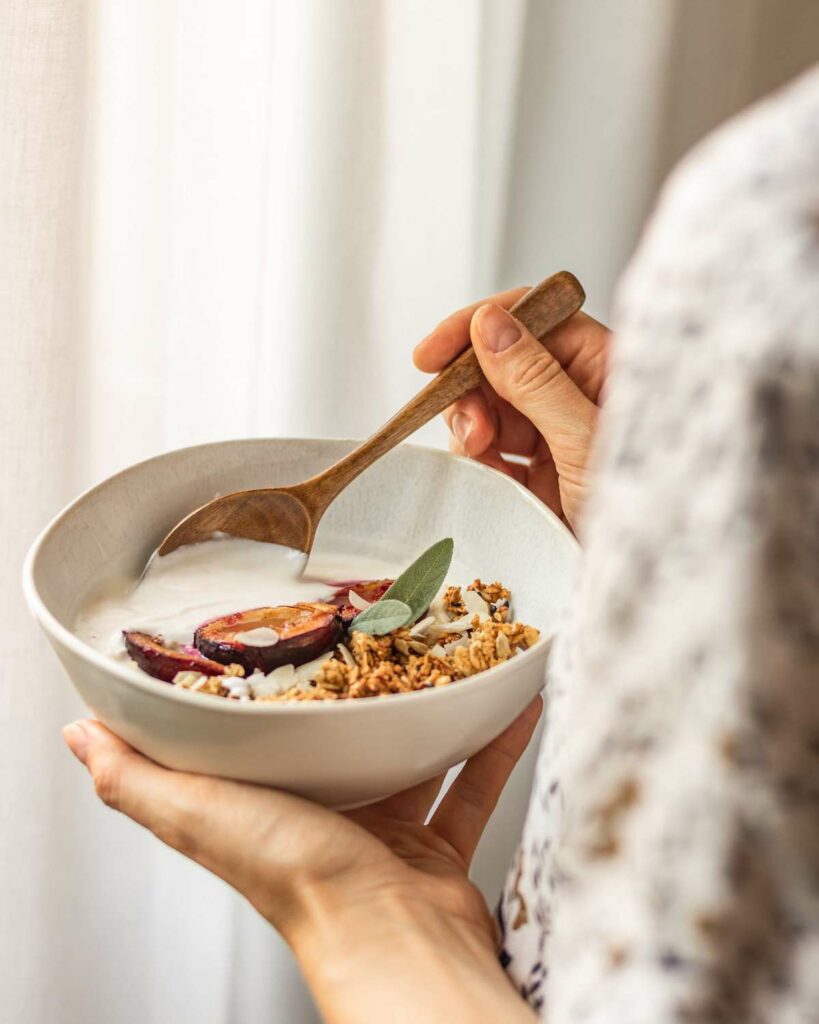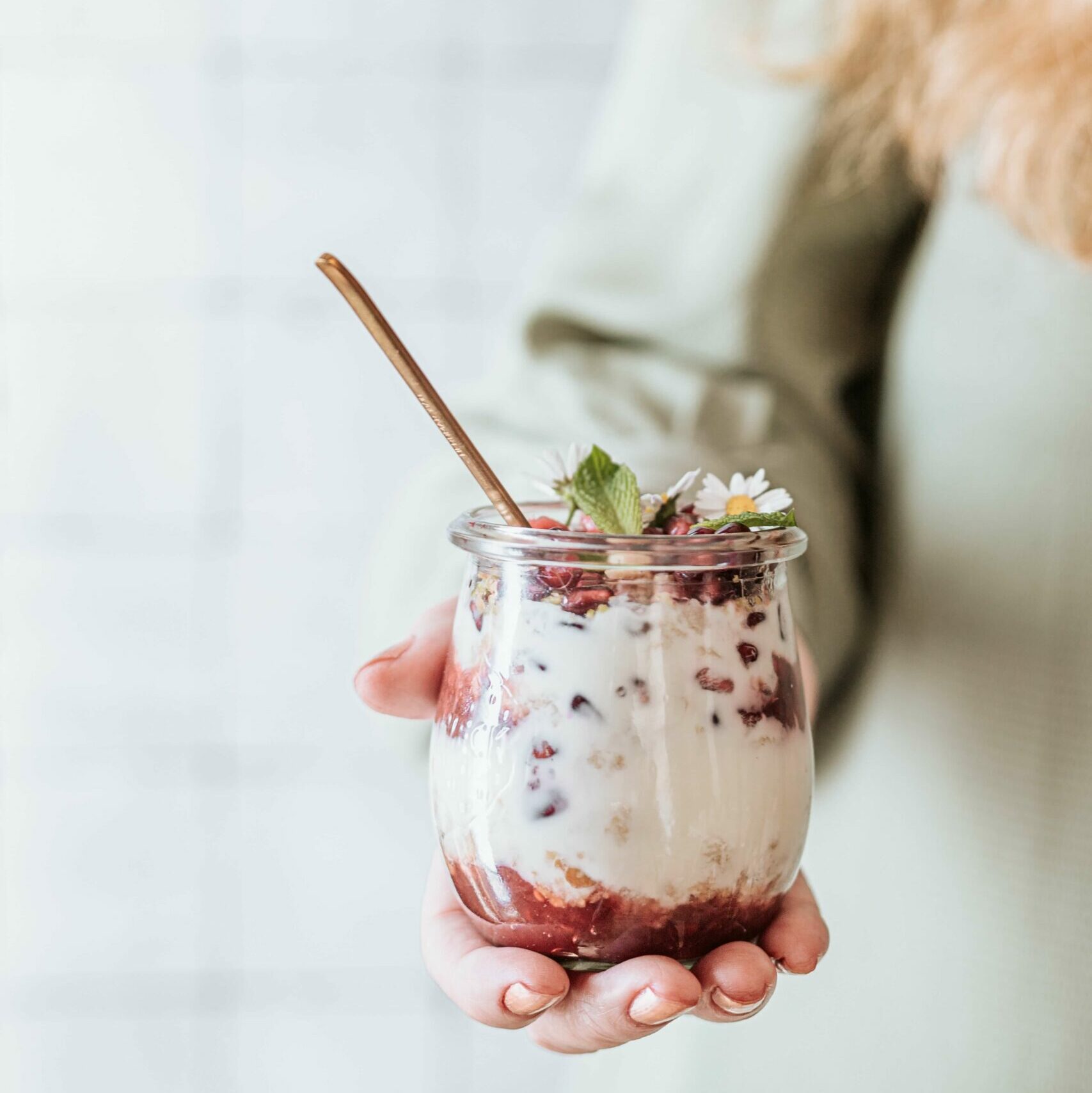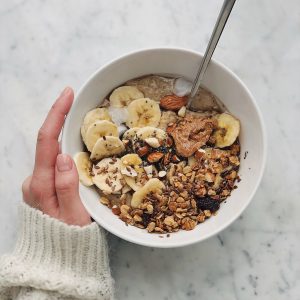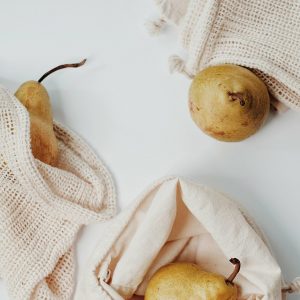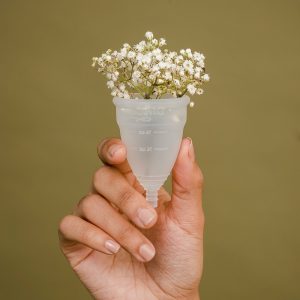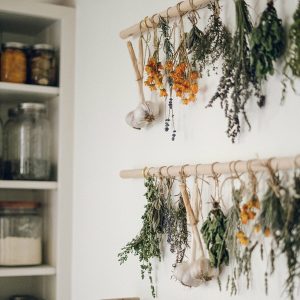Preventing iron deficiency anemia is very important during pregnancy to protect the health and well-being of both mother and baby. These are some of the best iron rich foods for pregnancy that you can include in your prenatal diet according to a maternal child-health dietitian.

Why is Iron Important for a Healthy Pregnancy?
Iron is an essential mineral that serves several critical functions in the body, especially during pregnancy. One of its primary roles is to aid in the production of hemoglobin, a protein in red blood cells that is responsible for carrying oxygen from the lungs to the rest of the body.
Iron is particularly important during pregnancy to prevent iron deficiency anemia, a condition where the body lacks enough healthy red blood cells to carry oxygen efficiently. Anemia during pregnancy can lead to fatigue, weakness, and if left undiagnosed can negatively impact the baby’s growth and development causing an increased risk for premature birth, low-birth weight, and postpartum depression.
How Much Iron Does A Pregnant Woman Need?
During pregnancy, a woman’s blood volume increases to support her growing baby, and as a result, her iron needs double to 27 milligrams or more each day.
Because every expectant mother is unique there isn’t a one size fits all approach for maintaining optimal iron level in all pregnant women. This is why it is important for pregnant mothers to have their iron levels routinely checked throughout their pregnancy, and do the best they can to consume a variety of iron rich foods during pregnancy to increase their iron levels.
Sometimes if a mother is experiencing particularly extreme pregnancy induced nausea/vomiting it may be difficult to meet her iron needs through food, and even with a diet full of iron rich foods taking iron supplements may still be necessary and should be advised by your health-care provider.

Signs of Iron Deficiency Anemia
Iron deficiency anemia during pregnancy can have significant implications for both the expectant mother and the developing fetus. Recognizing the signs and symptoms of iron deficiency anemia is essential for early detection and proper management. Some common signs of iron deficiency anemia in pregnancy include:
- Fatigue and Weakness: Feeling constantly tired and weak is one of the hallmark symptoms of iron deficiency anemia. As the body lacks sufficient iron to produce hemoglobin, there is a decrease in oxygen-carrying capacity, leading to fatigue and a general sense of weakness.
- Shortness of Breath: Due to the decreased oxygen supply to tissues, pregnant women with iron deficiency anemia may experience breathlessness even during light physical activity.
- Headaches and Dizziness: Inadequate oxygen reaching the brain can lead to frequent headaches and dizziness in pregnant women with anemia.
- Cold Hands and Feet: Poor circulation resulting from low hemoglobin levels can cause extremities, such as hands and feet, to feel cold to the touch.
- Rapid Heartbeat (Tachycardia): The heart may beat faster than usual as it attempts to compensate for the reduced oxygen-carrying capacity of the blood.
It’s important to note that some of these symptoms can also be attributed to typical pregnancy discomforts. However, if you experience any of these signs, or if you have a history of iron deficiency anemia or other risk factors, it is essential to consult your healthcare provider for proper evaluation and diagnosis.
Maintaining adequate iron levels during pregnancy is vital for your well-being and the health of your baby. Early detection and proper management of iron deficiency anemia can significantly reduce the risk of complications and ensure a healthy pregnancy and childbirth. Always follow your healthcare provider’s advice and attend regular prenatal check-ups for a safe and successful pregnancy journey.
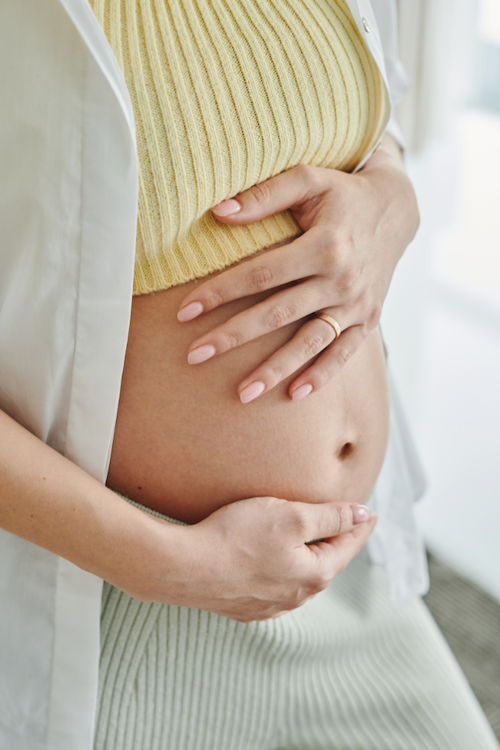
How To Treat Anemia in Pregnancy
Routine prenatal care includes screening for iron deficiency anemia. Your doctor may perform blood tests, such as a complete blood count (CBC) and ferritin levels, to assess your iron status.
If you develop iron deficiency anemia your doctor will most likely recommend including an iron supplement in addition to increasing your consumption of iron rich foods during pregnancy. The exact iron supplement dose will be dependent on each person, which is why many prenatal vitamin supplements don’t include iron in their formulations.
Sometimes if iron deficiency anemia is particularly concerning your doctor may recommend having iron infusions done to ensure iron levels reach an optimal level.

Types of Iron Rich Foods For Pregnancy
During pregnancy, it’s essential to include a variety of iron-rich foods in your diet to meet the increased iron requirements. Iron-rich foods can be categorized into heme iron sources (from animal-based foods) and non-heme iron sources (from plant-based foods). Combining both types of iron sources and incorporating vitamin C-rich foods can help maximize iron absorption. Here are some types of iron-rich foods suitable for pregnancy:
HEME IRON RICH FOODS FOR PREGNANCY
Heme iron is found in animal-based foods and is more readily absorbed by the body compared to non-heme iron. Here are some excellent heme iron sources for pregnant women:
- Grass Fed/Pasture Raised Red Meat: Beef, bison, lamb, and pork are rich sources of heme iron
- Poultry: Dark meat from chicken and turkey provide heme sources of iron
- Fish: Certain types of fish, such as salmon are good sources of heme iron and also offer omega-3 fatty acids, which are beneficial for fetal brain development. Avoid high mercury containing fish like tuna and swordfish as much as possible during pregnancy.
- Liver:Liver is one of the highest sources of heme iron. Since it isn’t the most palatable for many people try opting for grating frozen liver into other meat dishes like meatballs or hamburgers to hide the taste and make it more palatable.
NON-HEME IRON RICH FOODS FOR PREGNANCY
Non-heme iron is predominantly found in plant-based foods. Although it is not as efficiently absorbed as heme iron, it can still contribute significantly to meeting iron needs, especially when combined with vitamin C-rich foods that help increase overall absorption.
Here are some of the best non-heme iron sources:
- Legumes: Lentils, chickpeas, black beans, and kidney beans are excellent sources of non-heme iron and are also rich in protein and fiber.
- Green Leafy Vegetables: Spinach, kale, Swiss chard, and collard greens are not only rich in iron but also provide essential vitamins and minerals for a healthy pregnancy.
- Tofu and Tempeh: These soy-based products are good sources of non-heme iron, particularly when they are fortified.
- Quinoa: A nutrient-dense grain that offers both iron and protein, making it a valuable addition to a pregnancy diet.
- Seeds and Nuts:Pumpkin seeds, sunflower seeds, cashews, and almonds are iron-rich snacks that also provide healthy fats.

Vitamin C-Rich Foods to Improve Iron Absorption
To enhance the absorption of non-heme iron, it’s beneficial to combine iron-rich plant-based foods with sources of vitamin C. Vitamin C helps convert non-heme iron into a more absorbable form, increasing its uptake by the body. Here are some vitamin C-rich foods to incorporate into your pregnancy diet:
- Citrus Fruits: Oranges, grapefruits, lemons, and limes are abundant sources of vitamin C. Enjoy fresh-squeezed juice or add citrus segments to your salads and snacks.
- Berries:Strawberries, blueberries, raspberries, and blackberries are not only delicious but also packed with vitamin C. Sprinkle them on your breakfast cereal or yogurt for a nutritious boost.
- Kiwi: This fuzzy fruit is loaded with vitamin C and pairs well with other fruits in smoothies or as a standalone snack.
- Bell Peppers: Colorful bell peppers, whether green, red, yellow, or orange, are excellent sources of vitamin C. Slice them up for a crunchy and nutritious addition to salads or stir-fries.
- Tomatoes:These versatile fruits (often used as vegetables) contain vitamin C and can be included in salads, sandwiches, or as a base for sauces and soups.
- Broccoli and Cauliflower:Both of these cruciferous vegetables are rich in vitamin C. Steam or roast them to retain their nutritional value.
- Guava:Guava is a tropical fruit with an incredibly high vitamin C content. Enjoy it fresh, or blend it into a refreshing smoothie.
- Papaya:This tropical fruit not only contains vitamin C but also offers other essential nutrients like vitamin A and folate.
- Mango: Indulge in this sweet and juicy fruit during the season to boost your vitamin C intake.
- Pineapple: Apart from being rich in vitamin C, pineapple contains bromelain, an enzyme that may aid in digestion, which can be helpful for pregnancy induced heartburn.

Tips for Maximizing the Absorption of Iron Rich Foods for Pregnancy
In addition to incorporating iron-rich foods and vitamin C sources into your pregnancy diet, consider these tips to enhance iron absorption:
- Cook in Cast Iron Cookware: Cooking acidic foods, like tomato-based dishes, in cast iron cookware can increase iron content in your meals.
- Avoid Tea and Coffee with Meals: Tannins found in tea and coffee can inhibit iron absorption. It’s best to consume these beverages between meals.
- Pair Iron-Rich Foods with Vitamin C: When enjoying non-heme iron sources, combine them with vitamin C-rich foods to optimize absorption.
- Space Out Calcium and Iron Intake: Calcium can interfere with iron absorption, so try to consume calcium-rich foods (e.g., dairy products) separately from iron-rich meals.
- Consider Supplements: If your healthcare provider determines that you are at risk of iron deficiency or anemia, they may recommend iron supplements. Always consult your doctor before starting any new supplements during pregnancy.
Iron is a critical nutrient for a healthy pregnancy, supporting both the mother’s well-being and the proper development of the baby. Heme iron from animal-based foods and non-heme iron from plant-based sources, when combined with vitamin C-rich foods, create a powerful nutritional combination to meet iron needs during pregnancy.
Remember to maintain a balanced and varied diet, consult your healthcare provider, and follow their recommendations to ensure a smooth and healthy journey towards motherhood. With proper nutrition and care, you can enjoy a fulfilling and healthy pregnancy while providing the best start for your precious little one.



